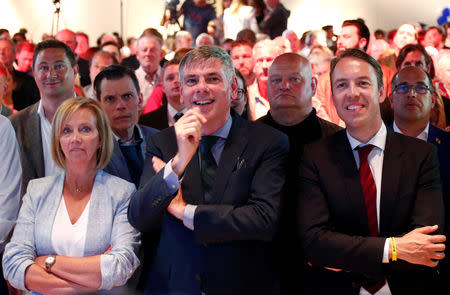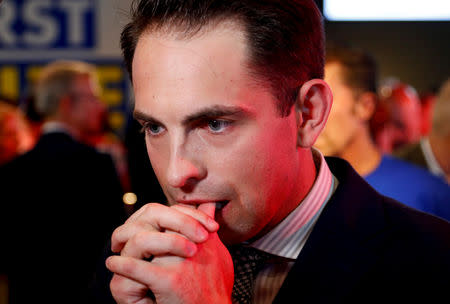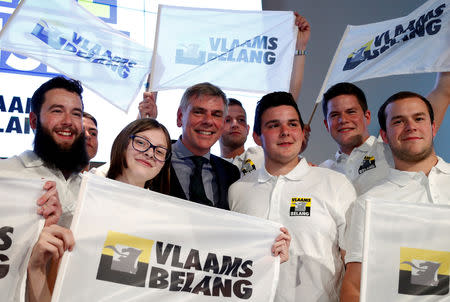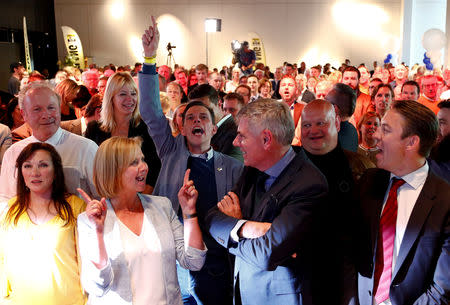Flemish far right gains in Belgian 'Super Sunday' elections
By Philip Blenkinsop
BRUSSELS (Reuters) - The far-right Flemish separatist Vlaams Belang party scored major gains in Belgian elections on Sunday, an outcome likely to make forming the next national government more difficult.
Linguistically divided Belgium held a "Super Sunday" of European, national and regional elections, which resulted in a shift to the right in more prosperous Dutch-speaking Flanders and to the left in French-speaking Wallonia.
With 85% of the vote counted, the anti-immigrant Vlaams Belang (Flemish Interest) gained across Dutch-speaking Flanders to become the second largest party in the region behind the more moderate separatist N-VA party. N-VA suffered after being part of the last federal government.
Christian Democrat politician Miet Smet, the widow of former prime minister Wilfried Martens, described the far right's success as terrible, marking a "jet black" day.
Vlaams Belang leader Tom Van Grieken disagreed. "This is not a black Sunday, but a Sunday full of hope. We want to assume our responsibility," he told a cheering crowd of supporters. The party has so far been excluded from ruling coalitions at all levels of government.
In the French-speaking south of the country, the Socialists (PS) of former prime minister Elio di Rupo were set to be the biggest party, ahead of current Prime Minister Charles Michel's liberal MR party, but with the same number of federal parliamentary seats as the Vlaams Belang.
The initial results and exit polls suggest Michel, who has been running the country of 11 million people in a caretaker capacity since December, could face many more months in that role as party leaders try to form a new coalition.
In 2010, that task took a world record 541 days until Di Rupo finally took office.
Belgium effectively runs two separate elections in the Dutch and French-speaking regions, with no national parties, after which it somehow has to weld together a federal government from both sides of the linguistic divide.
This could become harder with a greater number of Flemish separatists pushing for more powers to be devolved to Belgium's regions, something the poorer south resists.
The process could begin in the coming week, with King Philippe expected to speak to the leaders of the main parties.
People in other European Union countries are also voting on Sunday in elections for the European Parliament, which are expected to dent traditional pro-EU parties and bolster the nationalist fringe.
In France, the far right was seen winning the most votes, although in the Netherlands, there appeared to be weak showing for eurosceptics.
(Reporting by Philip Blenkinsop. Editing by Jane Merriman)

 Yahoo News
Yahoo News 














